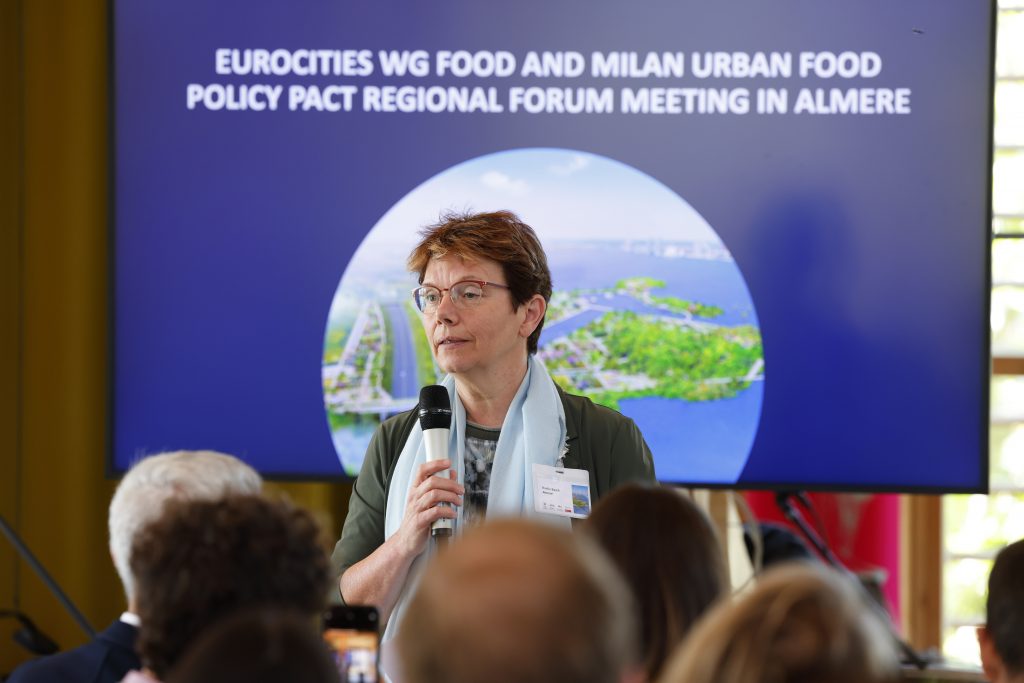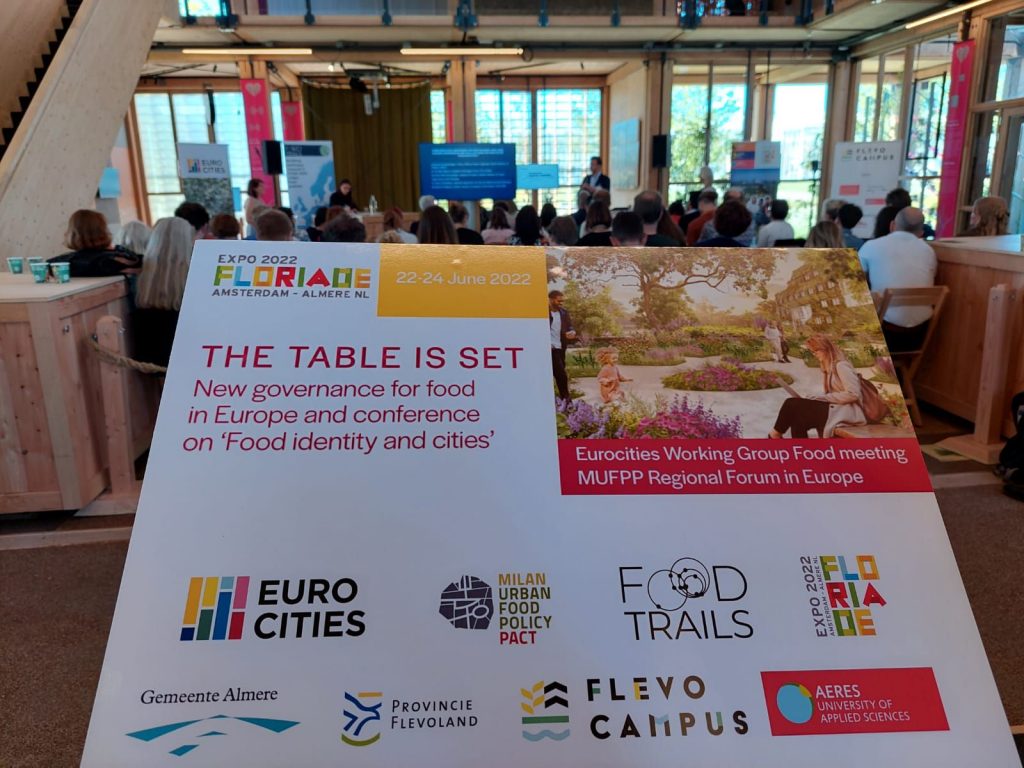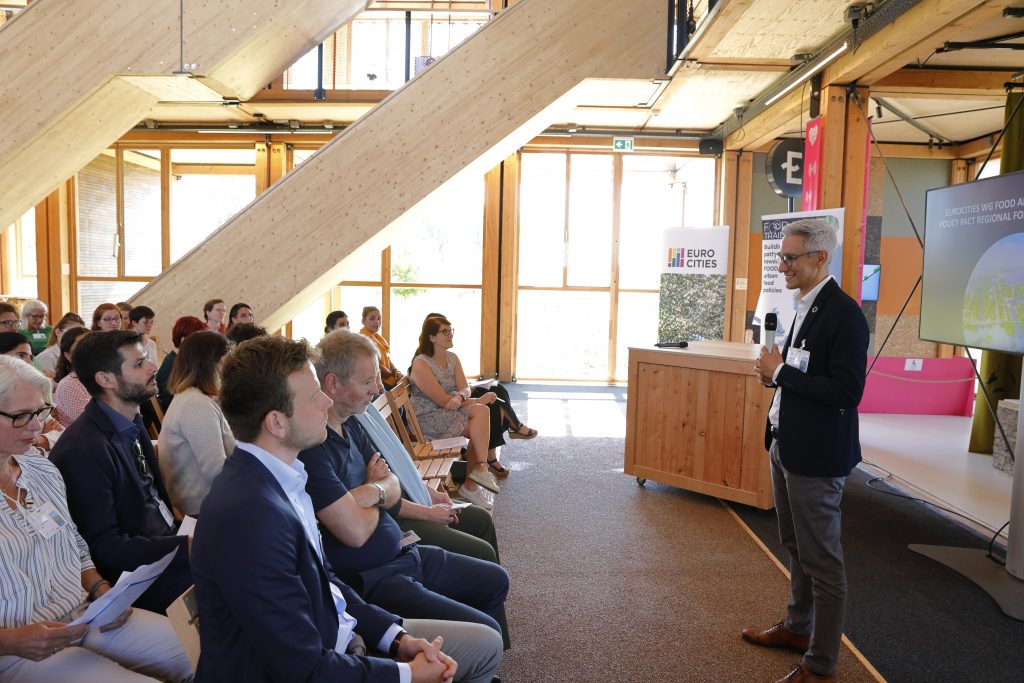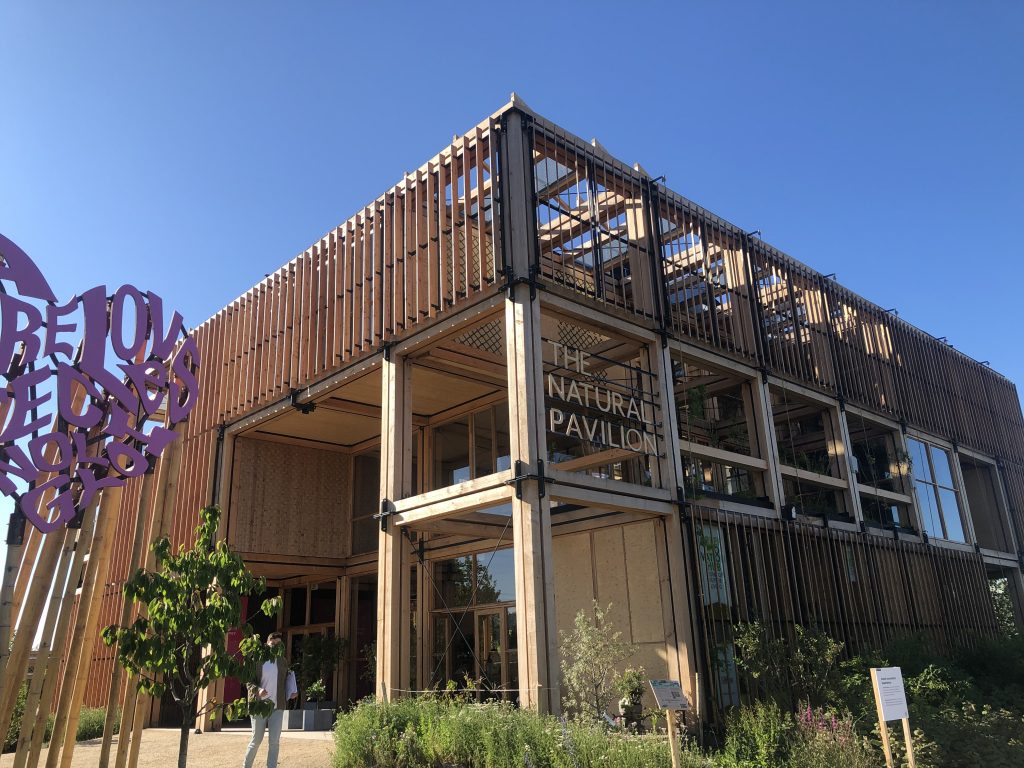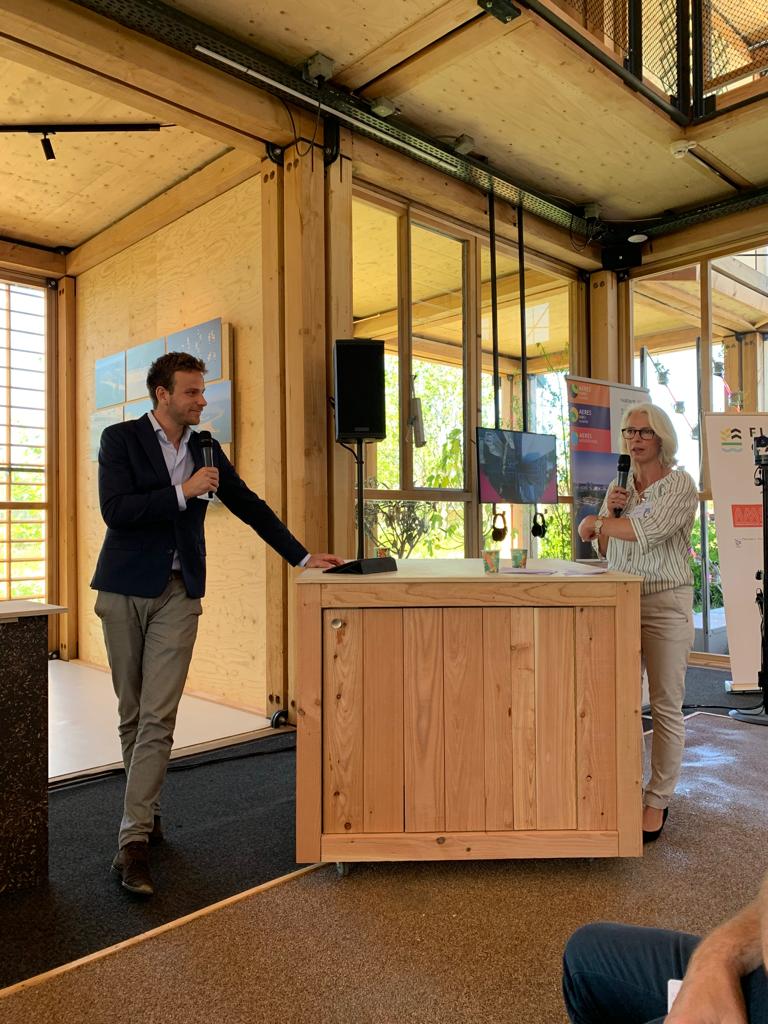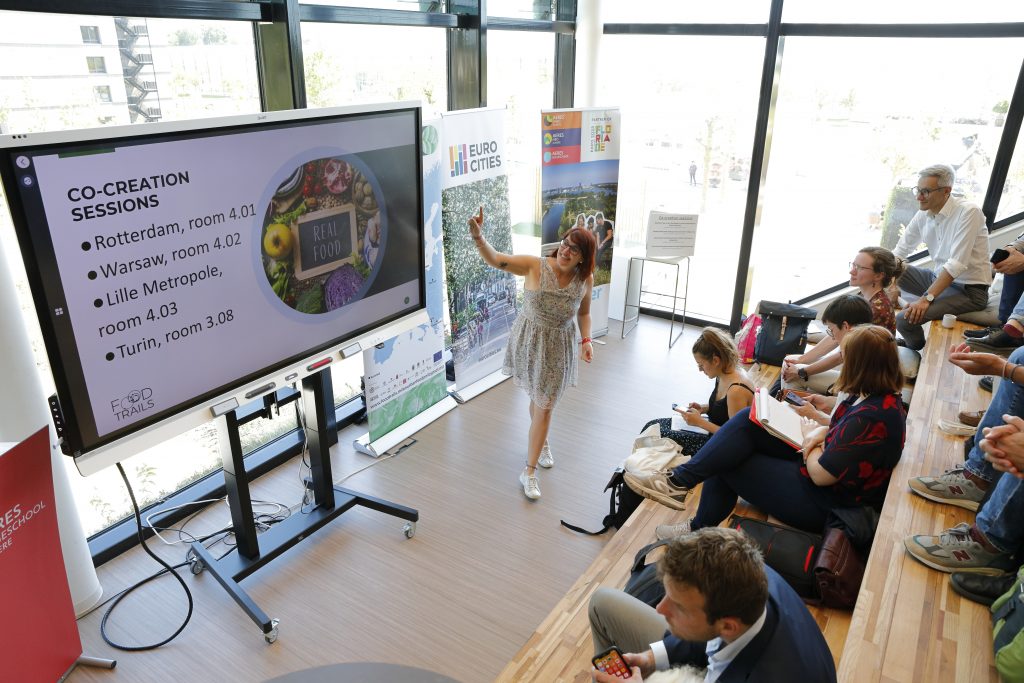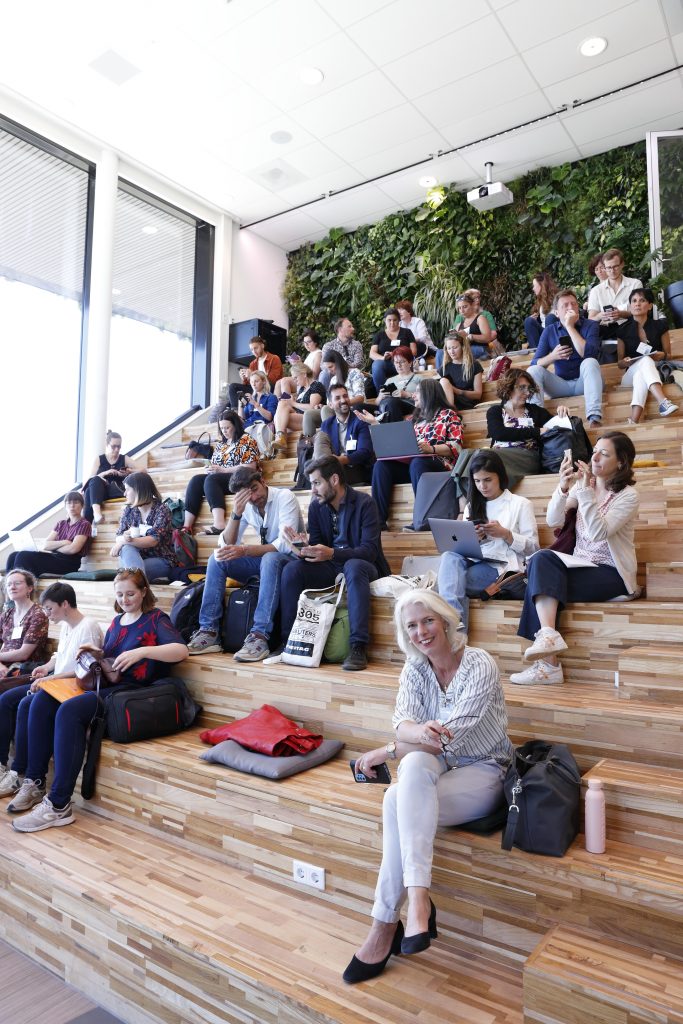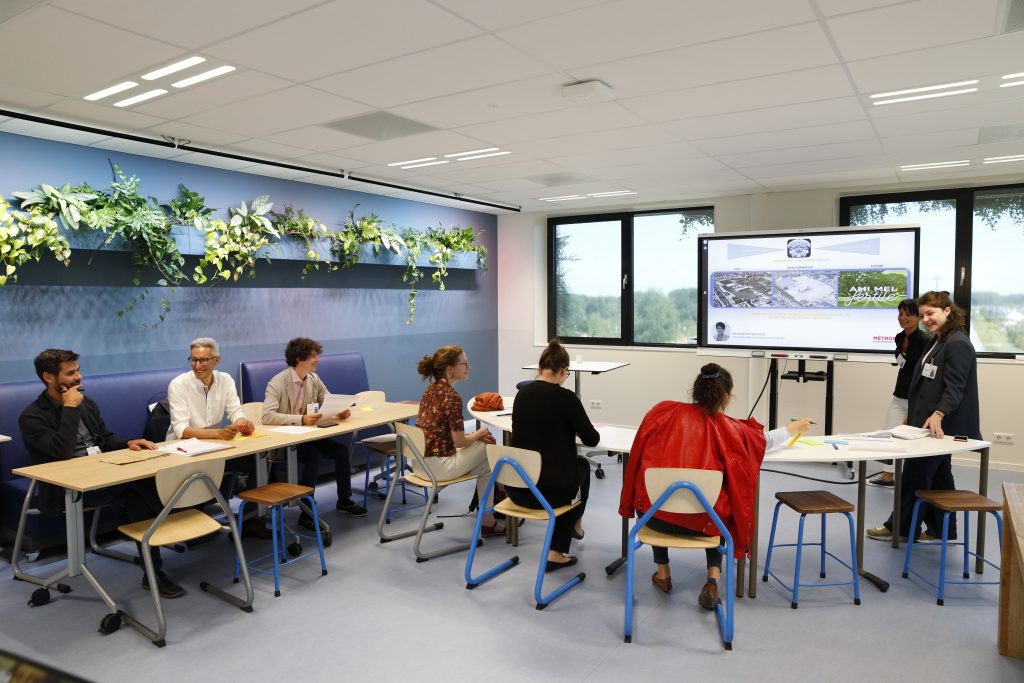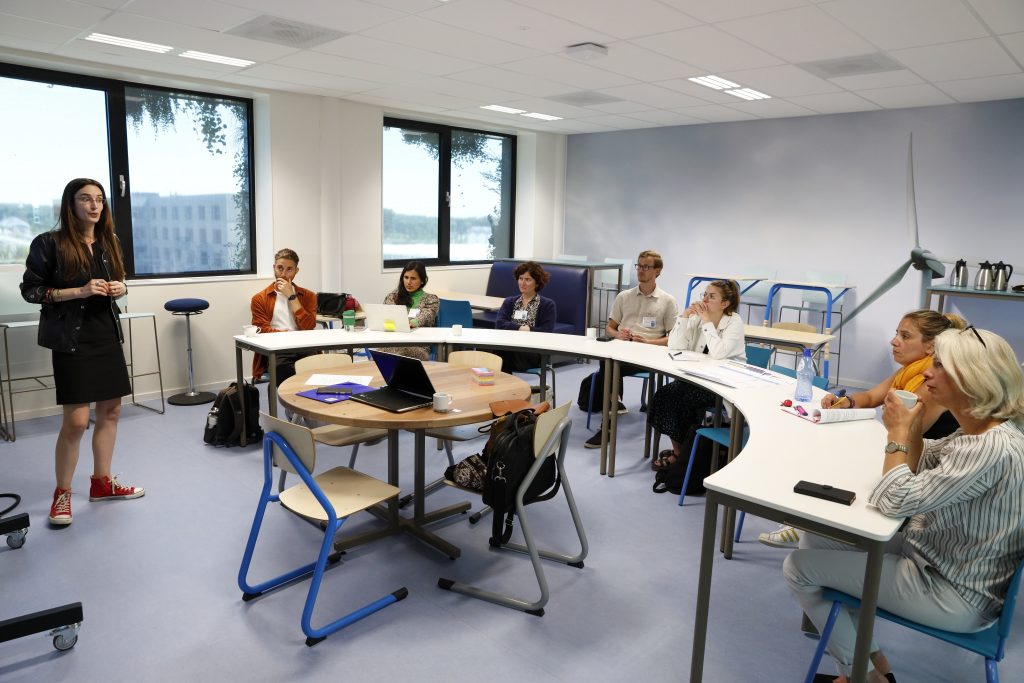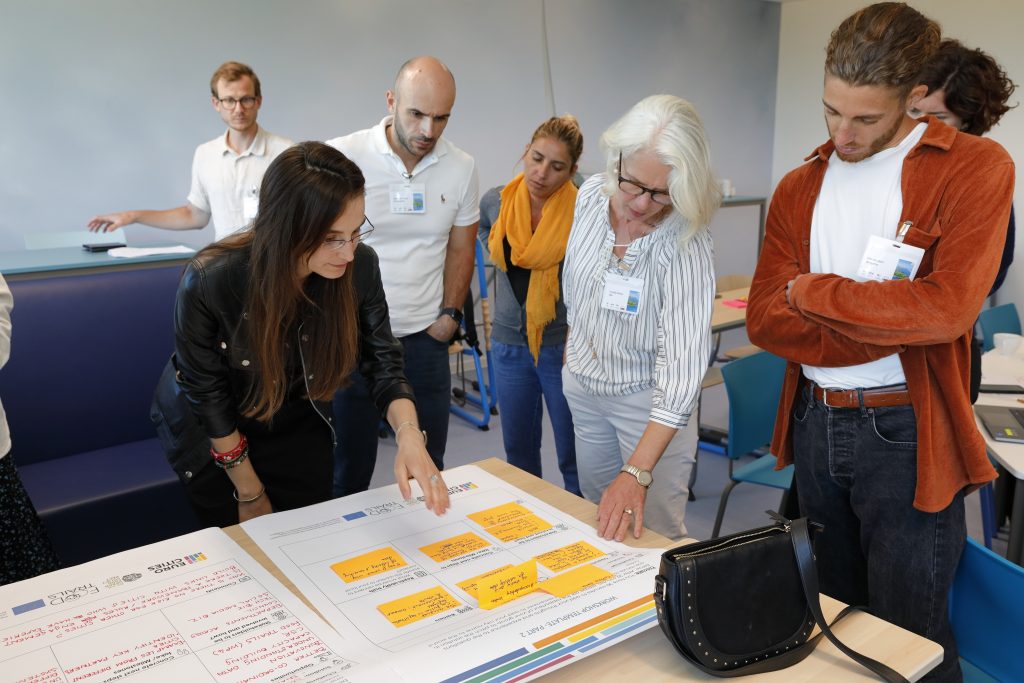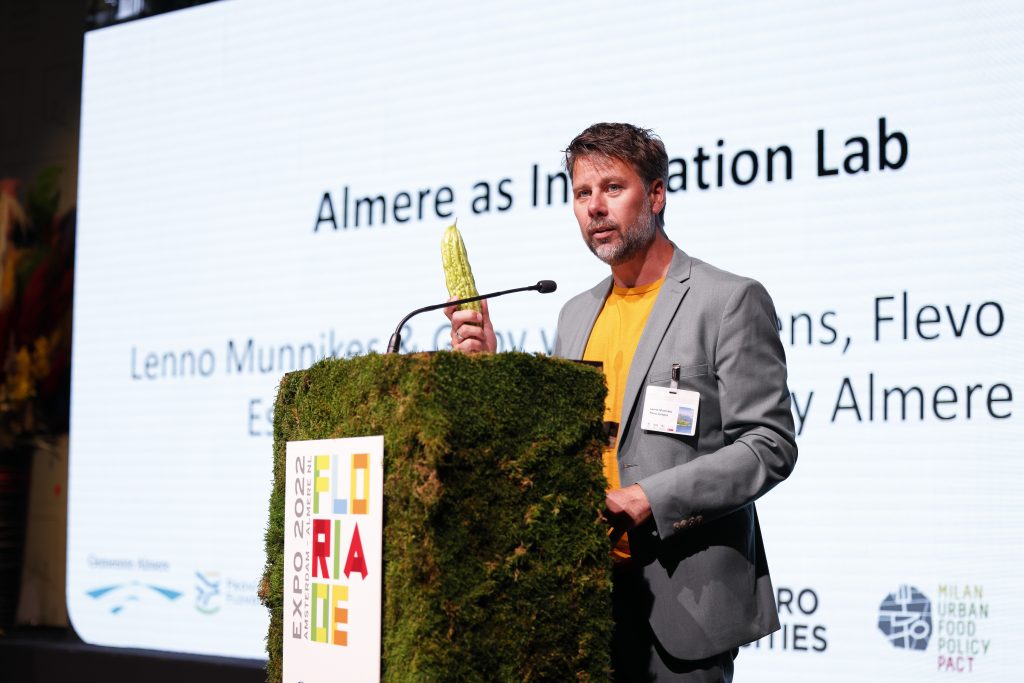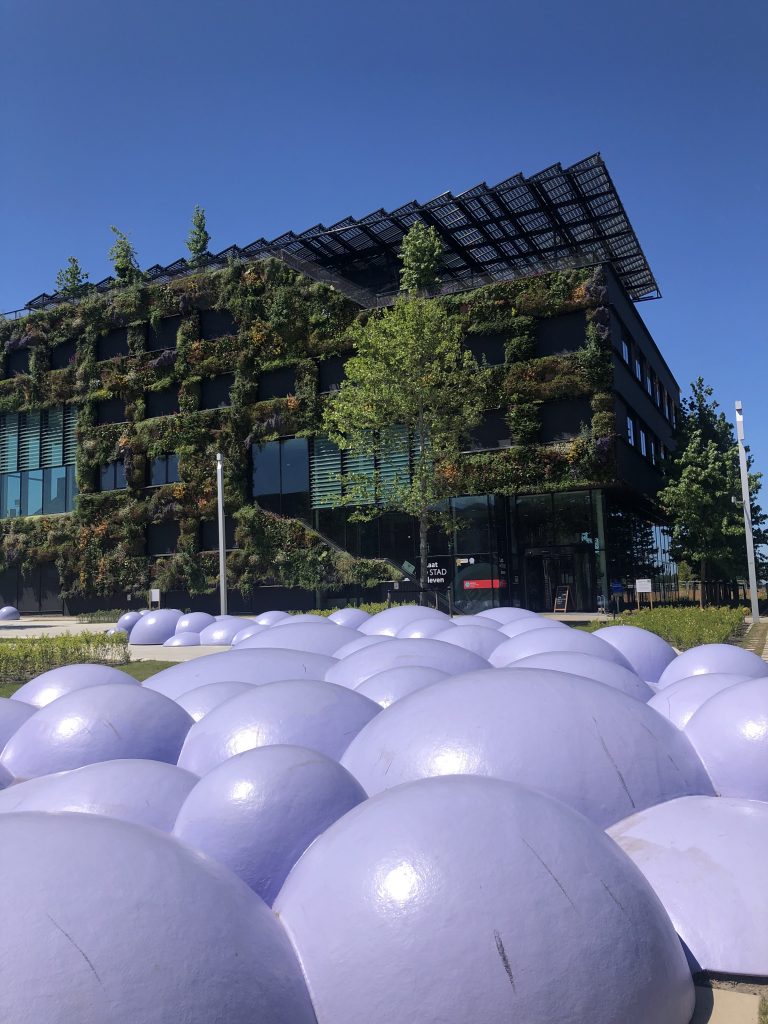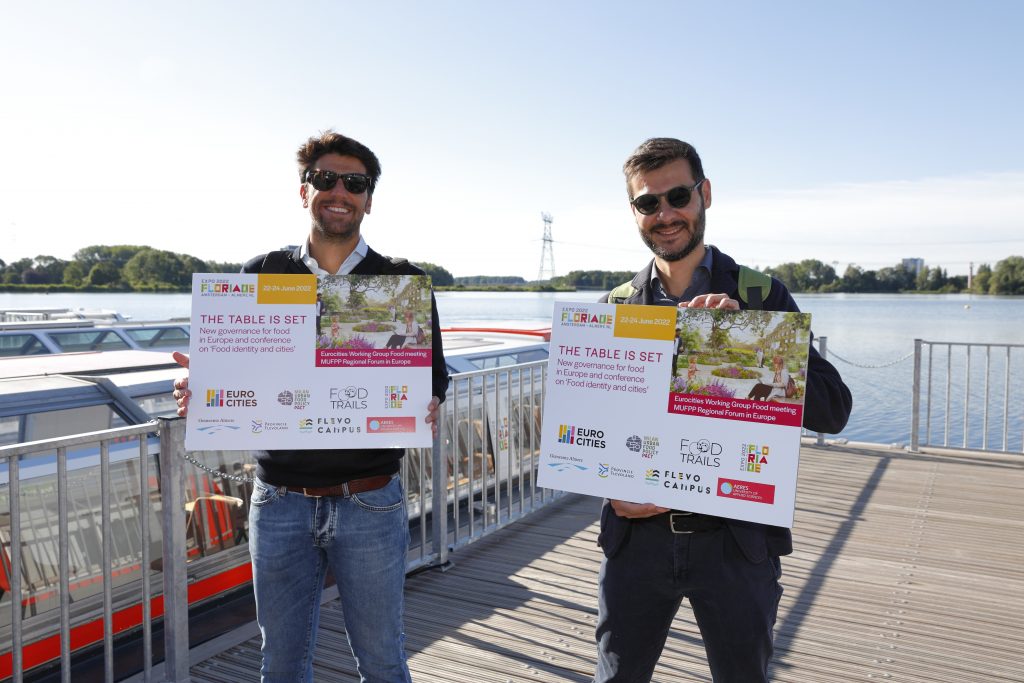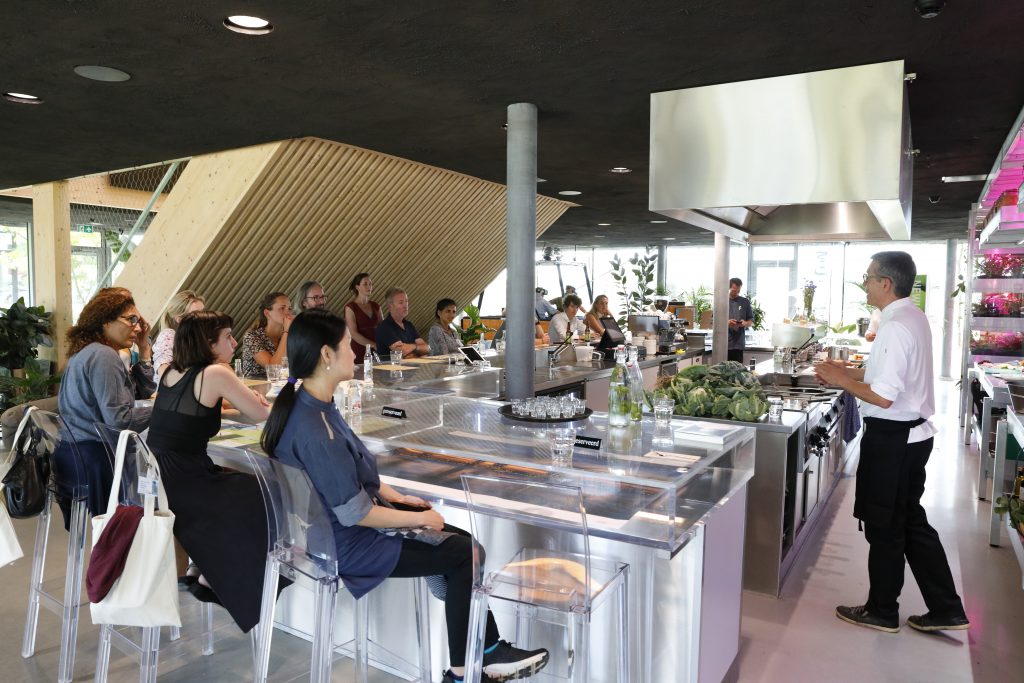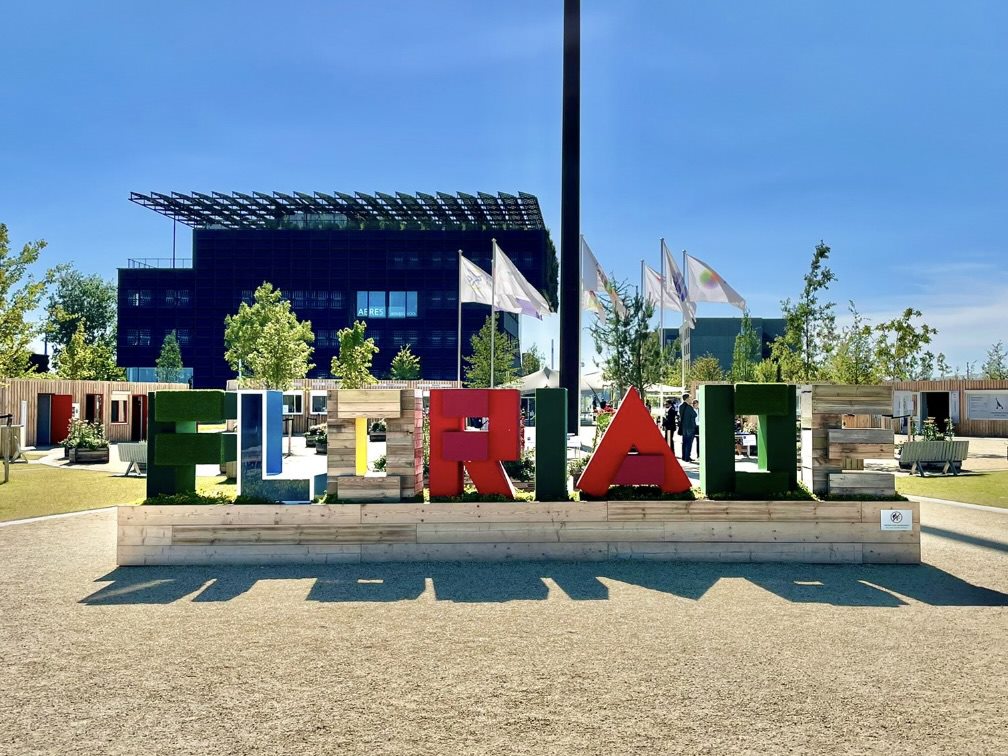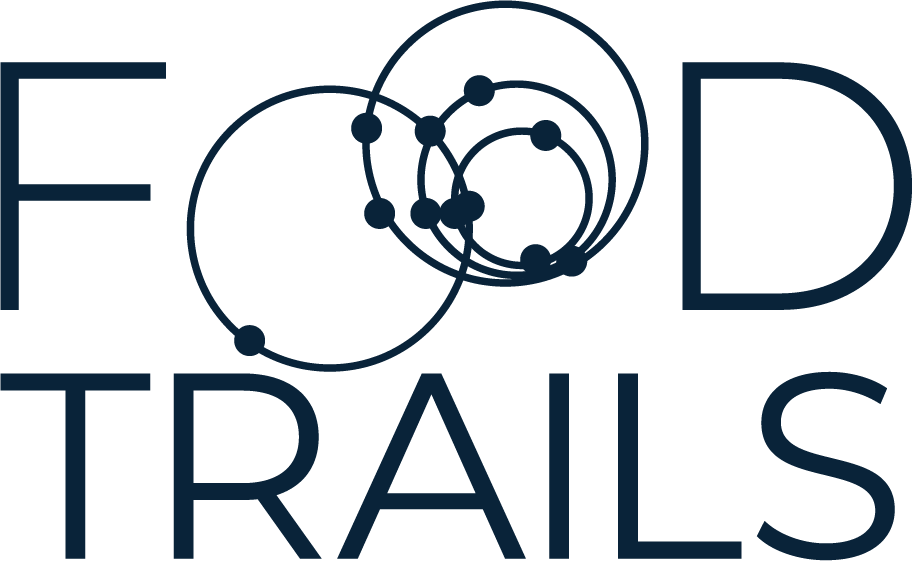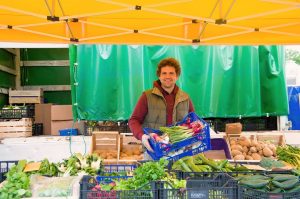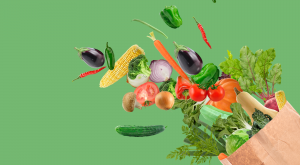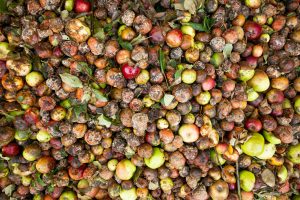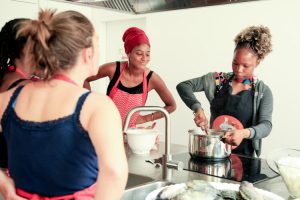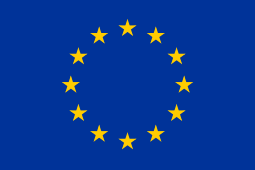A look back at the three-day meeting on food in Almere, a Dutch city located in a polder six metres below sea level.
Over 80 participants from Food Trails, the Eurocities Working Group Food and the Milan Urban Food Policy Pact (MUFPP) Regional Forum gathered at the fantastic Floriade Expo to reaffirm their commitment to go the extra mile to shift toward more sustainable, fair and healthy food systems .
For three days, participants shared experience and expertise and discussed how to overcome old and new food challenges to deepen and speed up their urban food transformation.
🍽 The table is set!
— Davide Zarri (@davide_zarri) June 22, 2022
Exciting day at the @FloriadeExpo 🌷 with fellow cities of @EUROCITIES WG Food and @mufpp Regional Forum to discuss and share though on the Food-Health-Environment nexus. Great! #EUFoodCities #Almere #Food2030EU pic.twitter.com/JYUkkgmpiI
Seize the full transformative potential of food
“Food policy is new in its attempt to interconnect the different actions cities are developing.”
Andrea Magarini, City of Milan and Chair of the WG Food
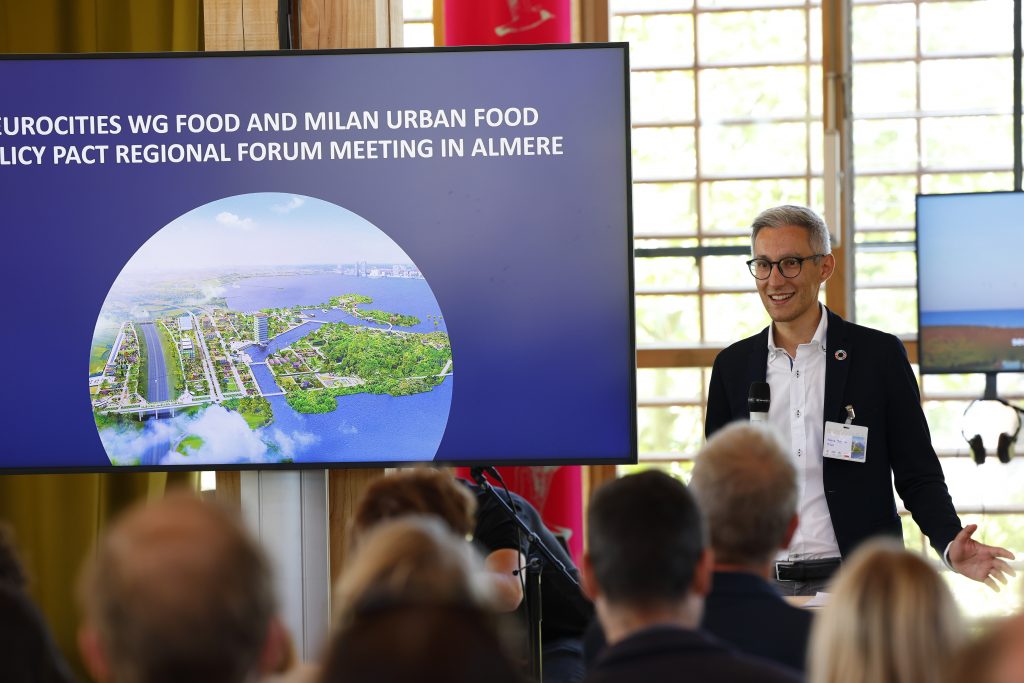
Local authorities already see the power of food and seize its transformative potential. Members of the WG Food/ MUFPP Regional Forum showed how they support citizens’ agencies and help them to make healthy and affordable food choices by making urban food environments more sustainable and inclusive for all.
Throughout the event, cities showcased how they’re innovating food systems. Actions include developing food strategies; raising citizens’ awareness for healthier and more plant-based diets; using their procurement power for collective catering to support short, organic, local, sustainable production chains; acting upon urban planning, soils and waste prevention and management.
However, if municipalities are at the forefront of food challenges, they cannot develop integrated, practical and inclusive food policies without the involvement and collaboration of multiple stakeholders, scales and visions, including national governments.
Strengthen multi-level governance on food
On 22 June, discussions focused on multi-level governance for food and successful examples of collaboration between national and local authorities that co-created large-scale food policies and actions.
Speakers from the Netherlands and Denmark presented examples of how collaboration between stakeholders, scales and visions can generate sustainable and inclusive food policies. Dutch and Danish national representatives shared visions and insights on how local and national authorities work hand in hand to co-design strong food policies, develop synergies, and test out and scale up food initiatives carried out by cities.
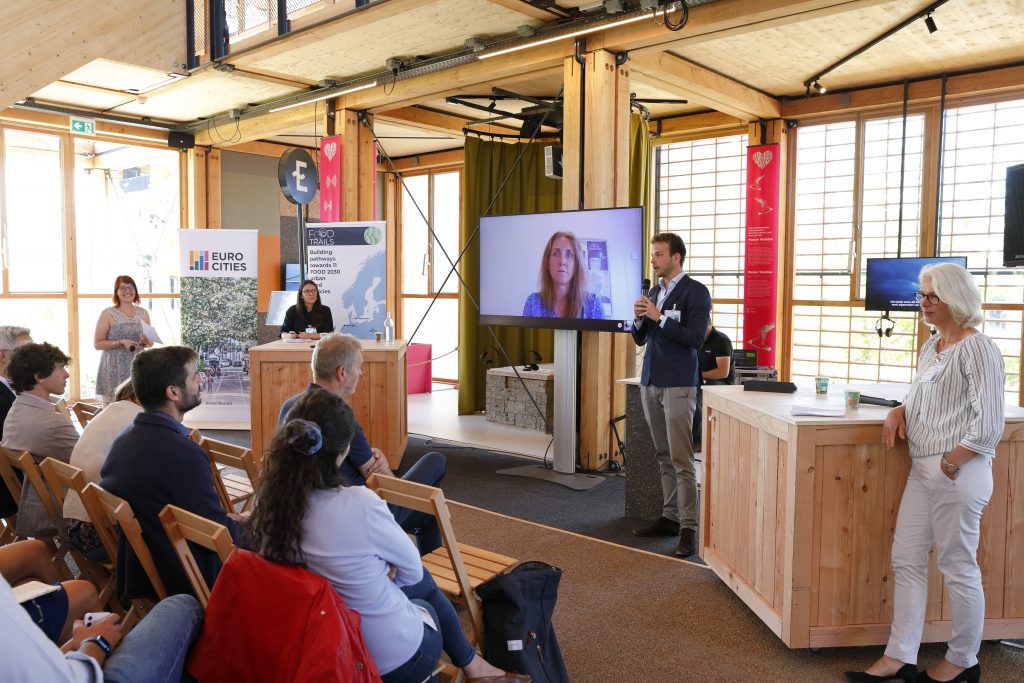
Froujke Idema, from the Dutch city of Ede, and Steven Kroesbergen, from the Dutch Ministry of Internal affairs, presented the City Deal, a unique partnership between the national government and cities on the food environment. The essence of the City Deal is to create an alliance between municipalities and the national government to collectively work on food issues, develop, experiments, and scale up integrated solutions. All of this is essential to having a real impact on stakeholders, Idema explained.
Cities benefit from the City Deal, and so does the national government. According to Steven Kroesbergen, since legislation and competencies covering the entire food system are shared – bringing all stakeholders to the table – collaborating and developing synergies is key. “If we don’t do anything, in 2030, more than 50% of the (Dutch) population will be obese, so we need to change our food habits, make them more inclusive, circular, and healthy, “Kroesbergen explained. “The national government needs cities as the legislation allows (them) to refuse fast food corners opening around schools” and therefore to act directly on food environment and choices,” Kroesbergen added.
Anne Pøhl Enevoldsen, from the Danish Ministry of Food, Agriculture and Fisheries, introduced the audience to the Danish national dietary guidelines’ elaboration. She said that consensus on this plan was achieved through collaborative, evidence-based, and inclusive partnerships and processes involving a great variety of stakeholders.
Finally, Marion Maignan, from DG Agri, shared the European Commission’s perspective, priorities of the future EU legislative framework and actions on food, and how the European Union could support cities in strengthening and speeding up their food systems transformation.
Marion Maignan from #DGAgri of the @EU_Commission 🇪🇺 presented the #FarmToFork Strategy 👩🌾🍽and upcoming new EU food law aiming to decrease the environmental footprint of the food system, to ensure food security, healthy diets, food affordability and fair incomes.#EuFoodCities pic.twitter.com/7QCImqHAMq
— Food Trails (@food_trails) June 22, 2022
Developing a systemic and participatory approach to food
On the afternoon of 22 June, co-creation sessions allowed cities and researchers to share best practices, expertise, and hands-on advice, to identify potential solutions and concrete next steps to advance on four challenges experienced locally.
- Rotterdam discussed how to better connect food and transport logistics
- Warsaw presented a challenge around structuring food aid for refugees in the context of the war in Ukraine
- The Métropole Européenne de Lille discussed resource management and urban food production in polluted soils
- Turin raised the question of youth inclusion in the development of food and climate policies.
Co-creation sessions 🚀
— Food Trails (@food_trails) June 22, 2022
This afternoon @food_trails cities came together to find innovative solutions to old and new challenges related to urban #FoodSystems
🌱Food Environment
🫂Food Identity&Social Inclusion
👩🌾Local&Regional Food
🌍 Food for a Healthy Planet#eufoodcities pic.twitter.com/KdM0Pr7e4N
The event also included visiting the Floriade Expo and “The Table Is Set” exhibition. The latter showcased inspiring urban food initiatives, from urban farming to collaborative and participative supermarkets. In addition, a tour of “Utopia Island” enabled participants to learn more about restoring nature while producing food through agroforestry and agroecology.
All participants agreed that urban food policies are not only about food. They also identified clear local governance, political support, and strong stakeholders’ involvement as central conditions to develop a self-sustainable food strategy and ensure a long-lasting transformation of food landscapes and diets.
What makes a city?
On 23 and 24 June, participants learnt more about the Almere food system and about local researchers’ work to grasp the city’s food identity and tackle food inequalities. Speakers from Aeres- University of Applied Sciences Almere, Flevo Campus and Wageningen University showed their contribution to restoring citizens’ eroded confidence in food systems, tackling urban food inequalities and strengthening food security and resilience at a local scale.
Speakers shared their insights on the local food system and how to feed and green the city. Starting from the specific context of Almere and the Province of Flevoland, they identified lessons from experiences around engaging various communities around food, re-localising and re-orienting food production chains and sites, and promoting sustainable and healthy food habits among all groups etc.
❓How do we find solutions to specific context to set a sustainable agenda for food in cities?
— Food Trails (@food_trails) June 23, 2022
🍏#Food become again an issue of a public agenda and cities should be ready to rethink local practices to deal with the challenges related.
🗣️@WertheimHeck (Aeres University, Almere) pic.twitter.com/Sd1GOZVggV
Speakers showcased Almere’s inspiring work to map the local food landscape better and address food identity, socio-cultural inclusion and regional food provisioning. Interventions showed how the city reinvents the way actors of the local food system deal with food while ensuring inclusive and sustainable transition pathways.
Food policies and actions should feed on local diversity, consider communities’ “hidden sustainability”, better include consumers’ creativity and enable entrepreneurs and food actors to thrive toward more sustainability.
🎙 Governing for #food transformation🌱is about listening citizens👱♀️, include consumers creativity 💡and sharing responsibility and roles 🤝.
— Food Trails (@food_trails) June 23, 2022
🗣️ Said researchers from the Aeres University #EuFoodCities pic.twitter.com/HO6rt8DaFZ
Cities experiences
Participants heard about three other examples of cities combining food action, socio-cultural inclusion and local supply chains.
First, Tessa Lindfield presented how the Birmingham Food Strategy was designed to bring everyone on board and generate change toward a self-sustainable and inclusive food system by putting cultural aspects at the centre and running conversations with various communities. She detailed the city’s approach to building food into every local opportunity and maintaining a constant dialogue with local stakeholders by continuously asking and testing assumptions.
Elisa Porecca showcased Milan’s work to strengthen local food supply chains, encourage local farming by developing partnerships with farmers to feed the city and favour more sustainable agricultural practices. She explained that policy-makers should not “leave behind the perspective of who (they) are working for” and consider citizens as critical players in the food system transformation.
Lieta Goetijn and Sofie Verhoeven started with an alarming fact: 1 child in 5 in Ghent is affected by obesity. Therefore, acting on the food environment, whether physical or not, to make it more healthy, inclusive and sustainable is a priority for the city. She explained how the city developed effective collaborative processes and educational actions in and around schools to teach children how to eat and model the city’s diet.
What lessons from cities? #FoodPolicies that address food identity, sociocultural inclusion, and regional food supply#Birmingham @TessaLindfield "people are getting passionate about the city's food actions and we are trying to create a self-sustainable foodsystem"#EuFoodcities pic.twitter.com/TB9CiKJLLp
— Food Trails (@food_trails) June 23, 2022
❓What if #Milan could be nourished with local products?
— Food Trails (@food_trails) June 23, 2022
🗣️ Elisa Porreca – @ComuneMI: "The promotion of local farming is one of the main challenge for the #MilanFoodPolicy and we are working together with farmers to set up a more sustainable agricultural system"#EuFoodCities pic.twitter.com/ATJsZolL1Z
How to model the city diets🥘? #Ghent representatives showcase how the city promotes healthy and socially inclusive food (physical) environment in and around schools 🏫 to foster sustainable food patterns and tackle children obesity. #EuFoodCities pic.twitter.com/3WWvBY0l4R
— Food Trails (@food_trails) June 23, 2022
The power of food
“We live in a world shaped by food. Still, food is too big to see. But when we do, it is extremely powerful (…) and the power of our choices can change the world for real.”
Carolyn Steel concluded by delivering an inspiring presentation on the notion of “Sitopia“, on how our food systems and relationship to food evolved, the paradoxes of our lifestyles, and why our societies need landscapes for humans and non-humans to flourish.
“We cannot flourish if nature is not flourishing.” A fantastic presentation by @carolynsteel on how to save the world through food. 🍏#FoodSystems #Foodpolicies pic.twitter.com/xXaIEUpkHq
— Francisca Feiteira (@franciscahpk) June 23, 2022
Participants could then attend Innovation workshops on a variety of topics, ranging from a cooking class, a presentation of research results on the Almere food system, a discussion on food procurement, to a presentation of the “emotion network” tool or the Guimarães Ecological Footprint calculator. These workshops aimed to share knowledge and experience and discuss the latest trends and good practices with researchers, cities, and practitioners.
Developing the agriculture of the future in Flevoland
The last day of the conference was dedicated to field visits on the Almere urban and regional food system and the surrounding Flevoland region. Flevoland is one of the most dynamic rural areas in the Netherland, combining the production of potatoes and onions for world markets with the strongest organic product sector in the Netherlands.
After a presentation of the region’s history and a 3D discovery of its characteristic landscapes and polders, participants visited the Farm of the Future, a research project led by Wageningen University to develop regenerative, sustainable, resilient and productive agriculture. The project aims to foster innovative land-use and production models which combine agro-ecology (strip cropping, agroforestry, biodiversity protection) and agro-technology (precision agriculture techniques based on big data and drones).
👩🌾 The study visit at the Farm of the Future.
— Food Trails (@food_trails) June 24, 2022
🌱Here new agroecological production methods are being developed, including strip cropping, biodiversity
preservation, agroforestry and precision agriculture techniques based on the use of big data and drones.#EuFoodCities pic.twitter.com/MpeTrIblzi
Back in pictures
